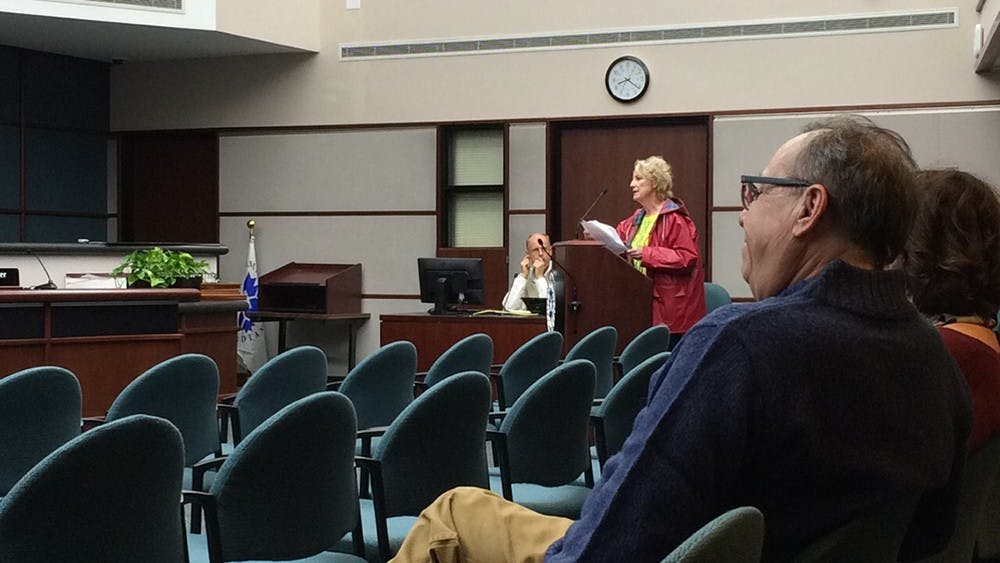Four and a half years ago, Cheryl Underwood was beginning her initial lawsuit, which protested the lack of notice given by the city to the homeowners affected by the new zoning plan.
Wednesday night, Underwood addressed the council in the final hearing of the ordinance.
Underwood’s legal battle was prompted by her property being zoned “down” in February 2007, when the initial zoning changes went into effect.
Underwood’s rental property, which had previously been zoned as Multi-dwelling Residential, was zoned into Institutional zoning classification.
As a result, she could no longer use the property as a multi-family dwelling, which decreased its usage and value.
Originally, the 271 owners whose properties were re-zoned, including Underwood, were not individually notified about the proposed zoning ordinances.
According to the Aug. 20, 2013, appeal to the Monroe Circuit Court, the interested parties had been notified with publications and public meetings.
The suit was fought and then appealed up to the Supreme Court, Underwood said. The Supreme Court agreed that the city had to notify the property owners individually.
Underwood told the council that compiling evidence for her case took hours of work and, along with legal fees, cost her nearly $160,000.
“It is your responsibility to be part of the checks and balances — no one citizen should have to do your work for you,” Underwood said. “Please. You are capable and can do better.”
Assistant city attorney Patty Mulvihill explained to the council that at the time of the initial zoning conflict, Indiana law had merely indicated that the city had to post notification in publication and notify “interested parties.”
Underwood said on June 26 of this year, the city agreed to change its notification policy for the homeowners.
According to its new process, the city informed all of the homeowners by private mail, and allowed five weeks for the owners to respond with questions or concerns.
Tom Micuda, the Bloomington Planning and Transport department director, told the council that of the 271 affected properties, only five owners requested a different zoning after the notice was received.
Of those five, Micuda said three arguments were resolved in favor of the constituent.
Underwood was awarded $100,000, which she called “a terrific waste to the taxpayer’s money.”
The new ordinance was adopted unanimously by the full council.
Council member Steve Volan agreed with Underwood that the appeal should not have been made to the Supreme Court after her initial victory but said blaming the administration alone ignores the responsibility of city government as a whole to address these issues.
“The council could have acted sooner (and) the council should have acted sooner,” Volan said.
Council member Andy Ruff, who asked Mulvihill to clarify the city’s legal position, said he disagreed that the city council had acted irresponsibly.
“Following or accepting the (position) of the legal department of the city doesn’t mean that we weren’t doing our jobs,” Ruff said.






